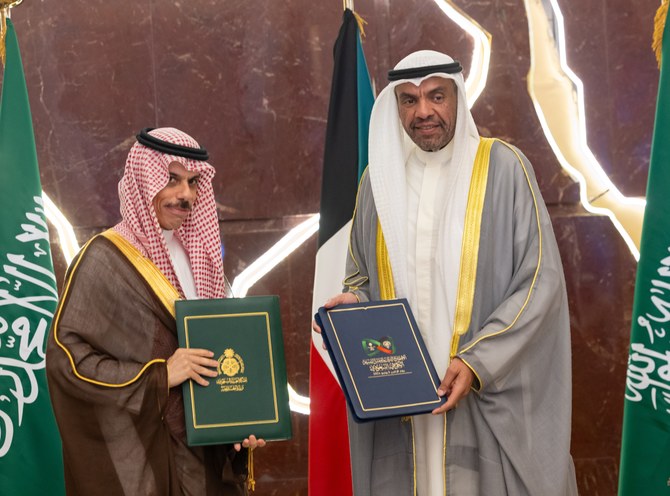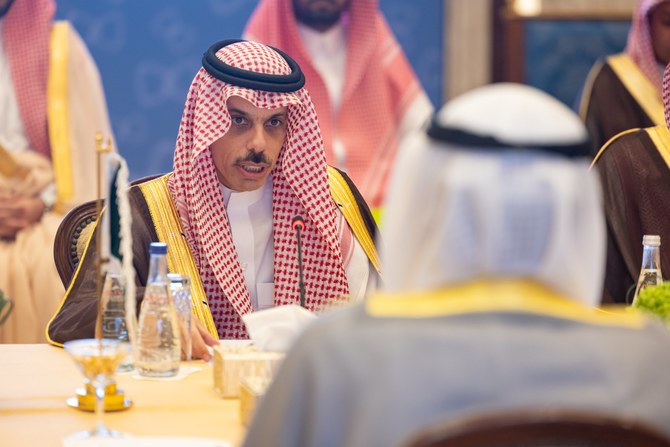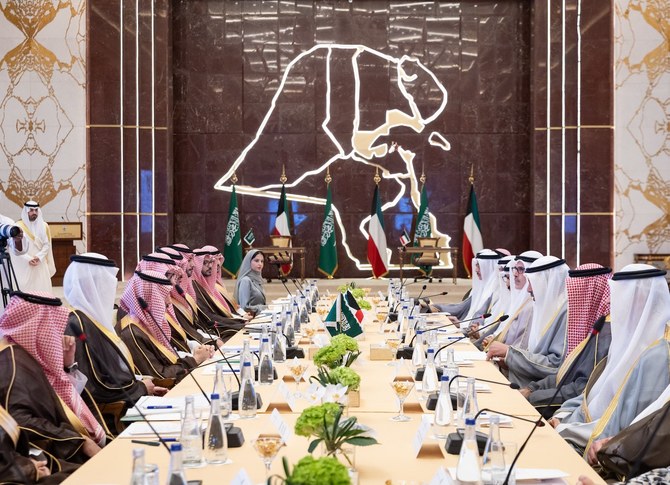RIYADH: The foreign ministers of Saudi Arabia and Kuwait chaired the second Saudi-Kuwaiti Coordination Council meeting on Monday, Saudi Press Agency reported.
During a speech, Saudi Foreign Minister Prince Faisal bin Farhan said the council reflected the interest of King Salman and Sheikh Meshal in deepening the relations between their countries further.
Prince Faisal also stressed the importance of the council and its committees as an effective platform and institutional tool that shapes the work of the two countries.
The minister said he looked forward to making every effort to turn the council’s outcomes into a tangible reality.
Both Prince Faisal and Abdullah Ali Al-Yahya emphasized the importance of political cooperation, joint coordination at bilateral, regional and international levels, and crystallizing positions in a way that serves common interests in a way that brings security and stability to the two countries, their peoples, and the region.
They also stressed the importance of strengthening existing cooperation and coordinating efforts to combat terrorism and financing it, and exchanging counter-terrorism experience to achieve the security of their countries.
They praised cooperation that has resulted in the flow of capital and intra-regional trade which contribute to enabling mutual investments between the two countries.
They also praised the continuous development witnessed in sectors including energy, industry, communications, information technology, infrastructure and real estate development, and railway connectivity.
The ministers outlined Saudi-Kuwaiti efforts to develop a common vision to strengthen and sustain cooperation in the fields of culture, media, tourism, social development, and exchanging cultural programs.
A joint cooperation program was signed between the Prince Saud Al-Faisal Institute for Diplomatic Studies and the Sheikh Saud Al-Nasser Al-Sabah Diplomatic Institute.
Two memoranda of understanding were signed between the two governments, the first on mutual recognition of seafarers’ certificates and the second in the field of technical cooperation to protect and preserve the environment.
Prince Faisal is on an official visit to Kuwait and was received earlier by the country’s emir, prime minister and foreign minister. He said he hoped to host the council’s third meeting in the Kingdom next year.




























